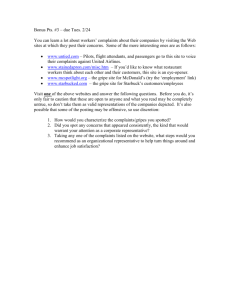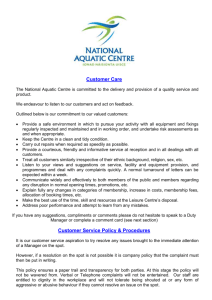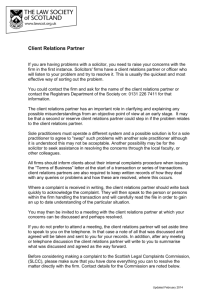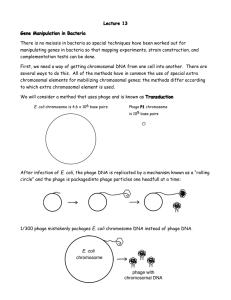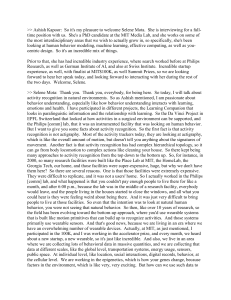General Operations Section 9 - Customer Complaint Procedure
advertisement
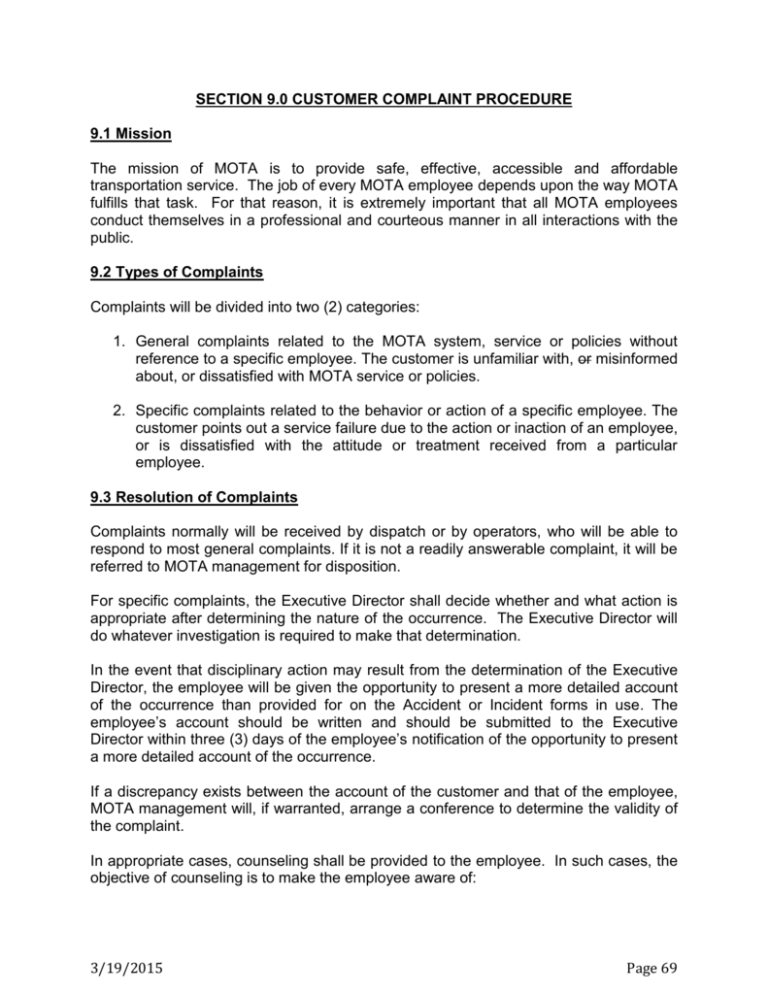
SECTION 9.0 CUSTOMER COMPLAINT PROCEDURE 9.1 Mission The mission of MOTA is to provide safe, effective, accessible and affordable transportation service. The job of every MOTA employee depends upon the way MOTA fulfills that task. For that reason, it is extremely important that all MOTA employees conduct themselves in a professional and courteous manner in all interactions with the public. 9.2 Types of Complaints Complaints will be divided into two (2) categories: 1. General complaints related to the MOTA system, service or policies without reference to a specific employee. The customer is unfamiliar with, or misinformed about, or dissatisfied with MOTA service or policies. 2. Specific complaints related to the behavior or action of a specific employee. The customer points out a service failure due to the action or inaction of an employee, or is dissatisfied with the attitude or treatment received from a particular employee. 9.3 Resolution of Complaints Complaints normally will be received by dispatch or by operators, who will be able to respond to most general complaints. If it is not a readily answerable complaint, it will be referred to MOTA management for disposition. For specific complaints, the Executive Director shall decide whether and what action is appropriate after determining the nature of the occurrence. The Executive Director will do whatever investigation is required to make that determination. In the event that disciplinary action may result from the determination of the Executive Director, the employee will be given the opportunity to present a more detailed account of the occurrence than provided for on the Accident or Incident forms in use. The employee’s account should be written and should be submitted to the Executive Director within three (3) days of the employee’s notification of the opportunity to present a more detailed account of the occurrence. If a discrepancy exists between the account of the customer and that of the employee, MOTA management will, if warranted, arrange a conference to determine the validity of the complaint. In appropriate cases, counseling shall be provided to the employee. In such cases, the objective of counseling is to make the employee aware of: 3/19/2015 Page 69 1. 2. 3. 4. 5. The need to prevent similar occurrences. The damage done to MOTA by employee errors or discourtesy. The appropriate way to respond in similar future situations. The need to prevent such complaints. The steps the employee may expect MOTA to take should a similar valid complaint be made. Depending on the seriousness of the complaint, the outcome of a complaint investigation may result in progressive discipline up to and including discharge, as specified in the Work Rules. Complaints of an extremely serious nature may result in omitting steps in the disciplinary procedure. 3/19/2015 Page 70


